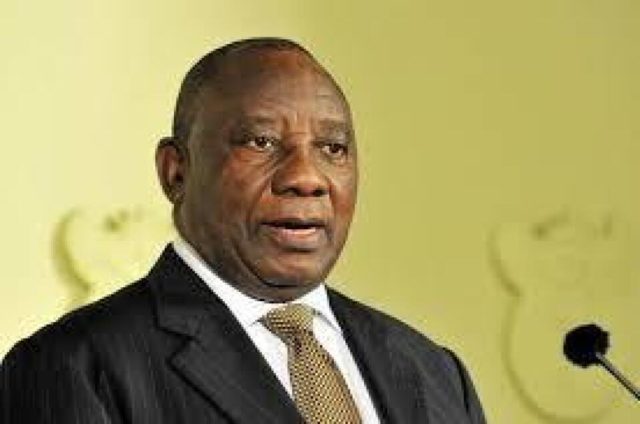“We cannot take action today that we will deeply regret tomorrow. We must avoid a rush to reopening.”
Most regulations restricting the movement of South Africans will continue to be enforced after the country lifts the hard 35-day national lockdown on May 1.
This is according to President Cyril Ramaphosa who was addressing the nation tonight on the plans by his administration to reopen the economy.
“We will implement what we call a risk strategy through which we take a deliberate and cautious approach to the easing of current lockdown restrictions. We have decided on this approach because there is still much that is unknown about the rate and the manner of the spread of the virus within our own population,”Ramaphosa.
While the sale of cigarettes would be allowed, the contentious sale of alcohol would continue to be prohibited.
Ramaphosa said the approach was based on advice from scientists who warned that an abrupt lifting of the restrictions could cause a massive resurgence in infections.
“We cannot take action today that we will deeply regret tomorrow. We must avoid a rush to reopening,” he said.
“Some businesses will be allowed to resume operation under specific conditions. Every business will have to adhere to detailed health and safety protocols to protect their employees,” Ramaphosa said.
DA interim leader John Steenhuisen said he had called on Ramaphosa, during the virtual meeting with political leaders ahead of his address, to make the wearing of face masks mandatory through a regulation to ensure that the easing of the lockdown did not result in the sporadic spread of the virus as people started to resume their normal duties.
“This is particularly important for high-density situations like on public transport and in shops, but should be mandatory in all places where people are not able to keep a 1.5 m distance,”Steenhuisen said.
ANC treasurer-general Paul Mashatile commended Ramaphosa’s administration for its response to the pandemic, which has been also applauded by the World Health Organisation (WHO).
Mashatile however described the expected 6.1% contraction of the country’s GDP and potential loss of around 370 000 jobs this year as a result of the pandemic and resultant regulations as deeply concerning.
Analysts warned Ramaphosa had no choice but to announce the easing of the lockdown as the economy was close to failing to sustain the poor, workers and hawkers.
Activist Protas Madlala said Ramaphosa has to ease the restrictions.
“He had no choice but to make the announcement as the growing poverty, which even food parcels could not address, had hit food traders, restaurants and temporary workers hardest.
“If he can really ease that (lockdown) it would go a long way to earn him support from the general public in fighting the disease,” said Madlala.
Madlala said Ramaphosa had performed “excellently” dealing with the crisis.
“The whole nation, including opposition parties, are fully behind him, which is unprecedented.
“But obviously, as he said there have been inconveniences here and there, all of them (opposition parties) are singing in unison with him to fight this thing because he had been excellent,” said Madlala.
Professor Mcebisi Ndletyana said while ensuring the prevention of infections and death, there was a need to ensure there was no severe impact on the economy.
Durban based independent analyst, Thabani Khumalo, said President Cyril Ramaphosa’s decision to ease the lockdown in stages was a smart move. He said that was because the decision was informed by scientific research and rationality.
“The plan balances between the need to save the economy while also saving lives. That was smart because if you concentrate on saving lives only, the economy will collapse and the very same people you have saved will have nothing to eat. They will get angry and revolt against the government,” Khumalo said.








